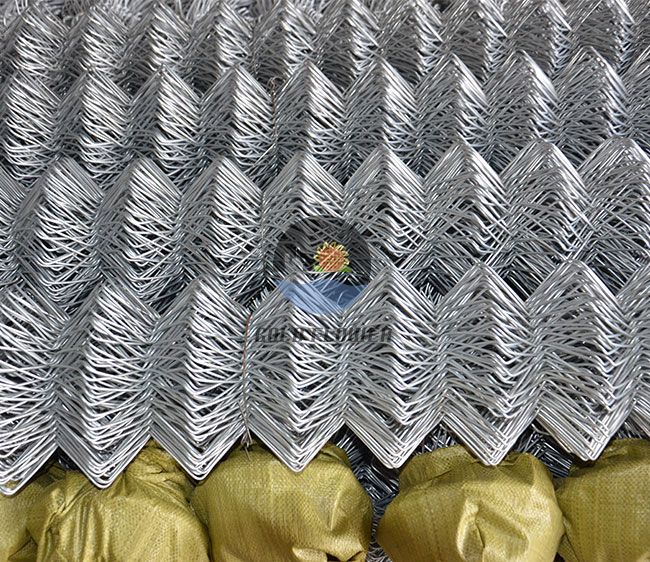Aug . 15, 2024 13:16 Back to list
Certifying Woven Metal Mesh Fabric for Enhanced Performance and Industry Standards Compliance
Understanding CE Certification for Woven Metal Mesh Fabric
Woven metal mesh fabric is a versatile and durable material commonly used in a variety of industrial applications, ranging from filtration and separation systems to architectural design and safety barriers. As global trade expands, ensuring the quality and safety of products has become paramount, leading to the importance of certifications such as CE marking. This article delves into the significance of CE certification for woven metal mesh fabric and its implications for manufacturers and consumers alike.
What is CE Certification?
CE marking, which stands for Conformité Européenne, is a certification that indicates a product's compliance with European health, safety, and environmental protection standards. It is mandatory for numerous products sold within the European Economic Area (EEA). By affixing the CE mark, manufacturers assert that their products meet the requisite EU regulations, enabling smoother access to the European market.
Importance of CE Certification for Woven Metal Mesh Fabric
1. Quality Assurance CE certification assures consumers and businesses that the woven metal mesh fabric complies with stringent European standards. This means that the fabric has been subjected to rigorous testing and assessment, ensuring its reliability and performance in various applications.
2. Market Access For manufacturers of woven metal mesh fabric aiming to enter the European market, obtaining CE certification is essential. Without it, products cannot be legally sold in the EEA, significantly limiting market opportunities and potential revenue.
3. Consumer Safety Woven metal mesh fabrics are often used in critical applications such as food processing, construction, and automotive industries, where safety is non-negotiable. CE certification helps to ensure that these materials are not only effective but also safe for users, thereby protecting public health and safety.
4. Environmental Compliance Many European regulations emphasize sustainability and environmental responsibility. CE certification encompasses these concerns, ensuring that manufactured woven metal mesh fabrics contribute positively to environmental goals, such as reducing waste and pollution.
5. Enhanced Reputation For manufacturers, achieving CE certification can enhance their reputation in the industry. It signals a commitment to quality and safety, which can be beneficial in acquiring new clients and retaining existing ones. Customers increasingly prefer to work with certified suppliers who prioritize regulatory compliance.
ce certification woven metal mesh fabric

The Certification Process
The CE certification process for woven metal mesh fabric includes several key steps
1. Assessment of Standards Manufacturers must first determine which EU directives and standards apply to their specific woven metal mesh products, such as the Low Voltage Directive or the Machinery Directive.
2. Testing and Evaluation The fabric may need to undergo testing by an authorized third-party organization to verify compliance with relevant standards. This may involve mechanical strength tests, durability assessments, or environmental impact evaluations.
3. Technical Documentation Manufacturers must prepare comprehensive technical documentation that details the materials used, manufacturing processes, and compliance testing results. This documentation must be kept available for inspection by authorities.
4. Affixing the CE Mark Once compliance is established, manufacturers can affix the CE mark to their products, signifying adherence to EU standards.
5. Ongoing Compliance CE certification is not a one-time process. Manufacturers must continually ensure that their products remain in compliance with any changes in regulations and standards.
Conclusion
In conclusion, CE certification is an essential aspect of the woven metal mesh fabric industry, offering numerous benefits ranging from enhanced product quality and consumer safety to increased market access. As global markets become increasingly interconnected, the importance of complying with international standards like CE marking cannot be overstated. Manufacturers who prioritize certification will not only bolster their reputations but also contribute to a safer and more compliant marketplace for all.
share
-
Safety Mesh for Windows – Durable Mosquito and Insect Protection Solutions
NewsJul.08,2025
-
12x24x1 Air Filter – High Efficiency Replacement for Improved Air Quality
NewsJul.08,2025
-
Premium Stainless Steel Mosquito Mesh - Durable, Rust-Resistant Protection for Windows & Doors
NewsJul.08,2025
-
Premium Stainless Steel Garden Mesh for Lasting Durability Best & High Quality Mesh Solutions
NewsJul.07,2025
-
Gold and White Blackout Curtains – Elegant Light Blocking & Insulation for Home
NewsJul.07,2025
-
Premium Spa Filter Cartridge for Clean Water Spa Pool Filters Cartridges for Jacuzzi Durable, high-efficiency spa filter cartridge for spas and jacuzzis. Improve water quality—order your pool filter cartridge now!
NewsJul.07,2025

